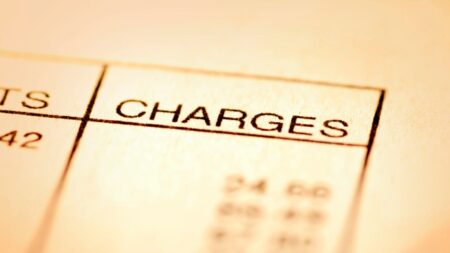Purchasing a home can be one of the most difficult life experiences you’ll ever go through. The process is even more daunting if you’re buying a house in Canada without a credit history.
All over the country, many individuals are deciding to quit renting and purchase their first homes because it’s a lucrative investment in the long-term.
Whether you’re buying a unit, a duplex, or a farmhouse, it can be distressing to find out you know so little about where to start. Read this guide to understand how to get a mortgage with bad credit in Canada, and the challenges of buying a house without a credit history.
Buying a House in Canada Without Credit History
Securing your Mortgage
If your credit report isn’t active at the moment, or you have a blank credit history, there are a few things you can do to secure mortgage approval. Credit history works hand in glove with credit.
Most financial institutions feel confident when they see you’ve got a long history of borrowing money and paying it back when due. But if you’ve got no info on your credit report, it isn’t the end of the road for you.
According to an independent market research, 40% of Canadians don’t want to know their credit score. Canada has two major credit agencies responsible for compiling your credit report; Transunion and Equifax. For you to buy a house without credit, you’ll need the following documents:
- Your credit report
- Employment History
- Proof of Residence
Once you have the above, you can follow the steps below to apply for your mortgage.
-
Put Your Documents in Order
Lenders prefer a credit report to figure out your creditworthiness, however, there are other factors they consider in the absence of any credit history.
They can get information from your bank statements to see how you handle your money, and this is an important criterion when seeking a mortgage. There are a few countries across the world where it’s difficult to get a mortgage with no credit history. Canada is one of them.
But if you’ve got documents that show your employment history, utility statements, and residential history, it can help your lender to know how good you are at managing your finances.
-
Present a Co-signer
You should understand a joint mortgage isn’t for everyone. Besides, not just anyone can sign a mortgage on your behalf. But if you have someone like a relative who can put their signature on the dotted line for you, then your lender will be more inclined to approve your mortgage.
On the flip side, your co-signer will be held responsible if you default on your monthly payments. Your lender may also like to see the name of the co-signer on the property deeds. It’s therefore crucial for all the parties involved to understand the stakes before going ahead with the process.
-
Pay Cash
Everywhere you turn online, you hear about how burdensome it is to finance mortgage debt. It’s therefore logical to believe that purchasing your home with outright cash is the way to go. And that is right if you have the funds to pull it off.
Paying outright cash for your Canadian home allows you to avoid paying mortgage interest to the lender as well as other incidental costs to close the deal. Some of the fees you eliminate include:
- Mortgage origination fee
- Appraisal fee
- Broker fee
- Mortgage Points
- Interest rates
Apart from this, paying outright cash is a far more attractive proposition to the seller. “A bird in the hand is worth a thousand in the bush” and so it is in the real estate market. Some sellers are even willing to offer potential buyers a good discount when they opt to pay in full and in cash.
The real estate market can be very competitive, and the seller can rest easy knowing the buyer isn’t going to back out of the deal due to a denial in their mortgage application. Paying cash also makes it easy for you to sell your home in the future because it isn’t in a lien.
-
High-Interest Loans
Also known as “payday loans” high-interest loans are funds that you can use to make big purchases like a new vehicle or in this instance, your house. Once you take a high-interest loan, you can pay back the principal and interest in monthly installments.
The advantage of a high-interest loan is that it can be secured with little or no collateral, and most importantly, without any credit history. Some of the documents you may have to provide include:
- Employment history
- Bank account
- Drivers license
However, because you’re securing the loan without a credit history, the interest rate on a high-interest loan can be high, going up as much as 400% in some cases. And this doesn’t include the expensive fees or penalties that form part of the loan.
On the flip side, once your application is approved, and you sign the contract, you can access the loan in less than 48 hours. High-interest loans may also have a short maturity window and it’s up to you to make sure you can pay off the loan within that period.
-
Seller Financing
If you’re not able to secure a mortgage because you don’t have a credit history, you can opt for seller financing. There are real estate companies that offer competitive rates and flexible payment options to buy a home. Seller financing is quite simple and straightforward. You sign a contract to pay off the loan and the seller gives you the title deeds to the property.
With seller financing, you own your home while the seller becomes your lender. This means you’ll have to make monthly payments to the seller. And because you’re the legal owner of the property, you can decide to refinance your home or sell it off.
The advantage of seller financing is that it gives you breathing space to improve or build your credit and in due time resort to a conventional mortgage. Once you do this, the seller gets the remaining sum. Although not all real estate companies offer seller financing, it is still a viable option for Canadians with no credit.
-
Build your Credit History
Sometimes, the best and only option is to build credit. If all else fails, it might be worth the effort to sign up for a credit card or take out a small loan.
Both options are a good way to establish good credit, especially where you pay your bills on time. If you use your credit card consistently and responsibly, lenders will know they can trust you to make your monthly payments.
According to Ratehub, 600 is the minimum credit score for mortgage approval. Most Canadian citizens have a credit score above 700+; it’s not mission impossible for you to surpass that range.
3 Reasons People with No Credit History Struggle to Get Mortgage Approval
-
First-time Homeowners
If you’ve never bought a home in Canada because you’re saving up for something big, it’s easy to understand. Nonetheless, it can be tough to get your first mortgage.
When lenders look at your credit report, they focus on two types of credit. These are revolving and installment credit.
- Revolving credit simply means once you clear off your monthly debt, you can use the funds again.
- Installment is the opposite of revolving credit in that once you pay it off, you can’t use the funds anymore.
Lenders like applicants seeking mortgage approval to have both types of credit in their credit report. But if you’re a first time home buyer, chances are, you won’t be able to show these types of credit to your lender.
This can affect your chances of getting a mortgage approval, especially where the lender has a strict policy with individuals who have bad credit or no credit history.
-
No Credit
If you’re a new immigrant to Canada, or you’re a young Canadian making your debut into the world of credit, building your credit history can be difficult. You can apply for the New To Canada Mortgage Program, or wait until you’re older before you apply for a mortgage.
The surest way to impress your lender is to come prepared. Making sure your supporting documents are in order – like your reference letter from your landlord, your utility invoices, or your employment history – shows lenders you’re responsible enough to shoulder the burden of a mortgage and make your payments on time.
-
Bad Credit
You’ll be hard-pressed to find a Canadian with a perfect credit score. In fact, 1 out of 5 Canadians has a credit score within the range of 680 and 749. If you’ve had a brush with bankruptcy or multiple defaults on your monthly payments, you might have a score below 550. But this shouldn’t deter you from seeking a mortgage.
Another way to boost your chances of buying your dream home without credit history or bad credit is to make a large down payment. The rule of thumb is that the lower your credit score, the more money you should save for your down payment.
You may not get access to the best mortgage products available, but you’ll be able to secure a mortgage from a reputable lender.
You can also consider applying for your mortgage with a lender who specializes in dealing with Canadians with no credit history. The rates might be higher, as well as paying more in fees, but it’s an option you can bank on when there’s no other alternative.
There’s no hard and fast rule for buying a property without a credit history in Canada. Pick whatever method works for your financial situation and make sure you consult a mortgage broker before you go house hunting.












